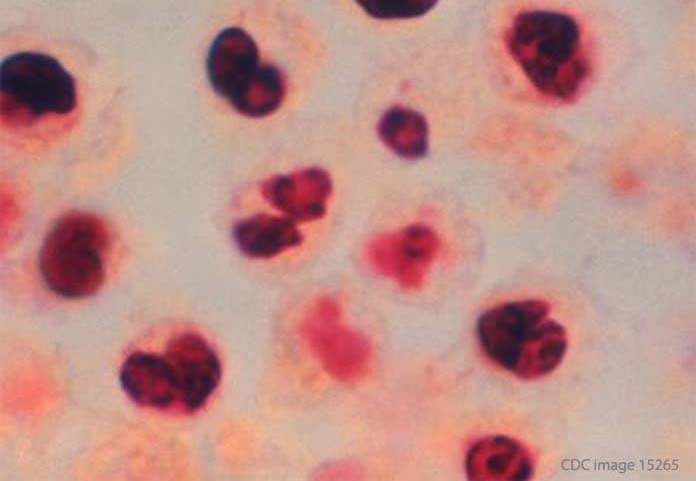Two cases of Legionnaires’ disease, a potentially life-threatening form of pneumonia, have been connected to Cross Road Retirement Community at 1302 Old Cox Road in Asheboro, N.C. This non-profit Christian ministry provides independent living, assisted living, and Alzheimer’s care services to seniors.
According to local news sources, Randolph County health officials were alerted on Saturday, October 14th that both a former and a current resident of the retirement home had been diagnosed with Legionnaires’ disease. The former resident was diagnosed soon after moving out of the facility, within the disease’s 10-day incubation period; the current resident who tested positive is a patient in the Alzheimer’s care unit.
Since the announcement, other residents have been tested for Legionnaires’ disease, with no positive diagnoses to date.
When Legionnaires’ Disease Strikes the Elderly
“While most cases of Legionnaires’ disease are not associated with health care facilities, 1 in 4 people who get the infection from a health care facility will die.”Centers for Disease Control and Prevention (CDC)
Legionnaires’ disease can be deadly when it strikes retirement communities – although healthy young people can recover from the infection, it poses a high risk to people over 50, smokers, those with chronic respiratory disease / COPD, with compromised immune systems, or with underlying medical conditions like diabetes, cancer, or heart disease.
A June 2017 CDC analysis found that of the confirmed Legionnaires’ disease cases associated with health care facilities, 80% occurred at long-term care facilities like Cross Road Retirement Community, 18% of cases were associated with hospitals, and 2% were connected to both environments.
It is thus imperative that retirement communities continually monitor their water systems for the presence of Legionella pneumonia bacteria, the source of the disease. When this bacteria proliferates in water systems at a long-term care facility and is released into the air as water vapor, people who inhale or aspirate the contaminated water droplets can catch Legionnaire’s disease.

This is why, on June 2nd, the CDC issued a Survey and Certification Memo urging health care facilities to develop policies and procedures to control the spread of Legionella and other waterborne pathogens in their water systems.
“Legionnaires’ disease in hospitals is widespread, deadly, and preventable. These data are especially important for health care facility leaders, doctors, and facility managers because it reminds them to think about the risks of Legionella in their facility and to take action … Controlling these bacteria in water systems can be challenging, but it is essential to protect patients.”CDC Acting Director Anne Schuchat, M.D.
Although the City of Asheboro performed routine quarterly testing of the water at Cross Road Retirement Community on Thursday, October 12, before the two cases of Legionnaires’ disease were reported, these state-mandated tests do not test for Legionella; they merely search for total bacteria counts, heterotrophic plate counts, and E.coli. Testing for Legionella conducted after notification that two residents had contracted legionellosis has produced negative results thus far.
The facility’s management has contracted Nalco Water to assess and remediate its water systems. During this process, residents are being provided with 600 gallons of bottled water; six portable hand sinks have also been placed in the facility.
Can You Sue a Retirement Facility if a Loved One Contracts Legionnaires’ Disease There?
In some cases, yes, you can. Long-term care facilities are well-aware of the risks that Legionnaires’ disease poses to their vulnerable residents. Deadly outbreaks like those at VA Pittsburgh and the Quincy, IL Veterans’ Home have encouraged the CDC to put retirement facility managers on notice that it is essential that they tightly and continually monitor their systems for Legionella and test residents who present with pneumonia-like symptoms for Legionnaires’ disease.
Our law firm is one of the few national firms that focus on Legionnaires’ disease litigation. There are specific steps which our Legionnaires’ disease lawyers, supported by medical experts, take in order to evaluate a Legionnaires’ disease claim. We work closely with victims and or their family members to confirm the pneumonia diagnosis, confirm the presence of Legionella bacteria at a long-term care facility, identify other victims who caught Legionnaires’ disease at the same time and place, conduct epidemiologic, environmental, and laboratory investigations. Using this data, we are able to structure litigation leading to multimillion-dollar settlements for victims of this dangerous but 100% preventable illness. Contact our law firm.